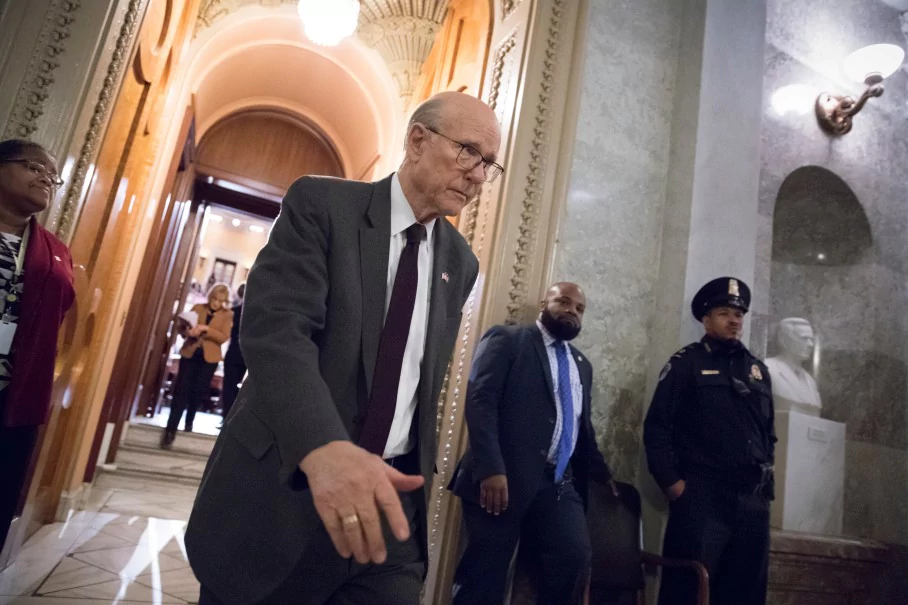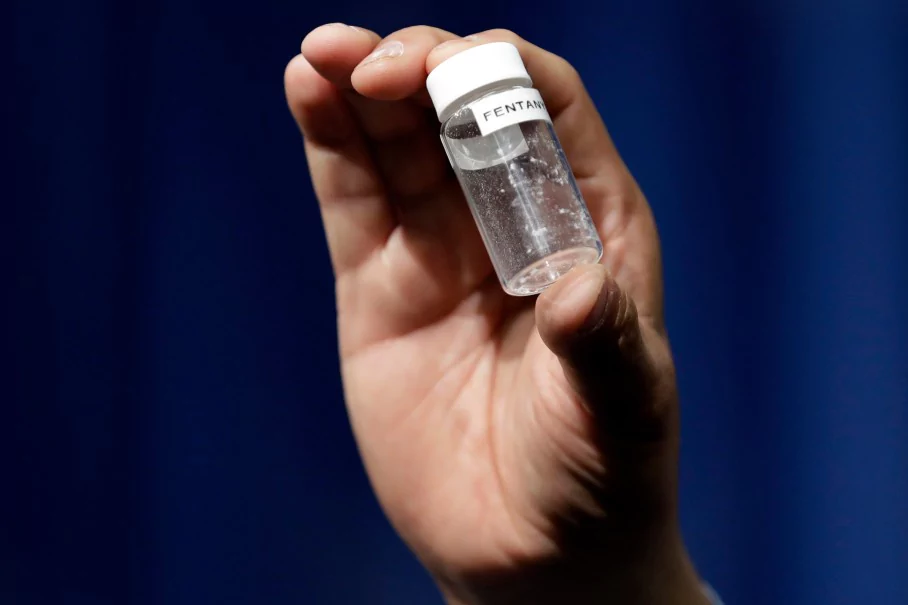Science Puts Sexual Aggressors Squarely on the Hook for Their Misdeeds
By Paige Winfield Cunningham
The science is in: Men who engage in sexual misconduct really can help themselves. Despite the excuses you might hear from leaders in the political, entertainment and media worlds who are accused of sexually harassing women (and some men) — a list that seems to grow daily — advances in brain imaging have recently revealed that these kinds of behaviors are simply not addictive in the same way drugs or alcohol might be. Here’s how researchers identify when a behavior is addictive: When that behavior starts lighting up the part of the brain connected to need instead of pleasure. That’s what occurs in the brains of people struggling with substance abuse. But the same thing doesn’t occur in people who say they have sexual urges they can't control, researchers said. “Now that we start to look at the brains of people and see what is going on, [sex addiction] doesn’t fit the criteria of a mental disorder,” Joye Swan, psychology chair at Woodbury University, told me. Psychologists have become so convinced of this that most of the leading scientific bodies have recently released papers or statements saying that what is called “sex addiction” isn’t actually an addiction. Last year, the American Association of Sexuality Educators, Counselors and Therapists said there’s insufficient evidence to support classifying sex addiction as a mental health disorder. In 2012, the American Psychiatric Association removed “sex addiction” from DSM-5, the handbook of mental health disorders. The science is something to keep in mind in the #MeToo era, as more and more women have the courage to speak up about their experiences with rampant harassment and misconduct -- and the cultural stigma begins shifting from the victims to the alleged instigators. There’s an increasingly crowded stage of powerful men facing such charges — most recently Sen. Al Franken (D-Minn.), who yesterday took to the mics to claim he doesn’t recall instances where four women say he touched them inappropriately — but also Rep. John Conyers Jr. (D-Mich.) (the latest charge is here), comedian Louis C.K., media figures Mark Halperin and Charlie Rose, actor Kevin Spacey and many others. President Trump has also been accused of sexual misconduct by 13 women. Some reporters didn't buy Franken's statement that he didn't remember groping the women who are accusing him. Vice's Eve Peyser: Of course, the Hollywood mogul whose past actions triggered the recent wave of accusations has appeared to blame his own indiscretions (to put it mildly) on a condition outside his control. Movie producer Harvey Weinstein recently said he’s on a “journey” to “conquer my demons” at a sex addiction facility. Now, there are personality traits associated with sexual misconduct. Psychologists refer to narcissism, Machiavellianism and psychopathy as the “dark triad” of negative characteristics that often show up in people with tendencies toward exploiting others sexually. Research has also shown a link between men in powerful positions and their willingness to take advantage of women. “Thinking about power makes them think about sex, and thinking about sex makes them think about power,” said John Pryor, a psychology professor at Illinois State University. But if it’s true that sexual misconduct is a compulsion, not an addiction, then addiction-oriented treatment is unlikely to work well, say experts, who caution against regarding Weinstein and others like him as caught in behavior patterns they can’t fix. Such alleged perpetrators may find it extremely hard to control their impulses, but it’s not impossible to do so, they say. Such behaviors are “certainly are not representative of some sort of underlying mental illness,” Pryor said. Swan likens getting better to skipping — every day — that ice cream sundae you crave. It’s hard to stop eating your favorite sweets, but it’s doable with the right kinds of strategies and incentives. “More and more we are thinking these are people with high libido but very low impulse control,” Swan said. Swan says therapy should involve cognitive restructuring, giving people tools to avoid sexual misbehaviors while stressing their personal responsibility to act respectfully toward others. It’s a real problem, she says, when the term “sex addiction” is carelessly bandied about in media and pop culture. “If we as a culture say they have a sickness and we allow that to be the excuse, I think it will keep perpetuating the cycle,” Swan said. There’s another key way to get men to refrain from sexual misdeeds: Create incentives against it. If Franken had guessed the actions he is accused of might be exposed, he probably wouldn’t have engaged in them, Pryor said. The same is true for other members of Congress who have settled sexual harassment complaints using millions in taxpayer dollars from what has been dubbed a slush fund for workplace disputes (some lawmakers are trying to make an opaque system more transparent). If, for example, elected officials had to settle such disputes using their own funds, they might think more carefully before engaging in inappropriate actions. And if women continue speaking up, men tempted to do something untoward will be increasingly aware of the embarrassment that could follow. Most people respond well to consequences, and sexual behavior is no exception. “It certainly is a stigma to be labeled a harasser,” as Pryor said. AHH: Facebook is using artificial intelligence to try to prevent suicides. A new tool, which is available to most of Facebook’s roughly two billion users, detects suicidal intention among users by combing through posts and videos to try to find alarming content as soon as possible, our colleague Hayley Tsukayama writes. The faster the posts are found, the quicker they can be escalated to authorities. The tool uses pattern recognition to scan for language signaling whether a user needs help, prioritizing based on a number of markers, such as phrases like “are you ok?” or “can I help?” If the problematic post is a live video, users can report the post and contact a helpline in order to help their friend. The Facebook tool also provides posters with an option to contact a helpline themselves or a friend. The tool’s reviewers can also contact first responders. The new program follows a string of live-streamed suicides on the social media network back in April. A month later, the company said it planned to add 3,000 staff to its “community operations team,” which reviews posts and content reported for being violent or troubling. Yet even with a machine helping human reviewers, there are limits. When Facebook first announced the effort, chief executive Mark Zuckerberg acknowledged it's a difficult problem to tackle. “No matter how many people we have on the team, we’ll never be able to look at everything,” he said in May. Last year, The Post’s Caitlin Dewey wrote that Facebook’s algorithm hasn’t always gotten it right when it comes to some of its other tools.
OOF: Approval of the Affordable Care Act has slipped somewhat over the past six months, falling to 50 percent from a high of 55 percent approval in April, according to a new Gallup poll. But high early figures for open enrollment in the ACA marketplaces coincide with generally lower approval ratings for the law when compared to a full year ago. Now just 44 percent of Americans disapprove of Obamacare, down from 53 percent disapproval at this time in 2016.
OUCH: A government watchdog says the Veterans Affairs Department failed to report potentially dangerous doctors, putting veterans at risk of receiving "unsafe medical care." The agency was extremely slow in responding to complaints about doctors and other health-care providers, taking anywhere from three months to several years to investigate concerns by patients, according to the report from the Government Accountability Office. There wasn't even a paper trail for half the complaints the GAO reviewed. The problem led to several situations outlined in the GAO report where doctors kept seeing veterans despite outstanding, uninvestigated complaints against them. In one case, a provider who was terminated at one VA medical center in a case related to patient abuse subsequently got a position at another VA center. In another case, a doctor left the VA but continues to work for a provider network with a large body of patients who are veterans. "Until [Veteran's Affairs] strengthens its oversight of these processes, veterans may be at increased risk of receiving unsafe care through the VA health care system," the GAO concluded.
Three more weeks, three more week, three more weeks (in actual days, not legislative ones). That's how long Congress plans -- at the moment -- to work before the end of the year and the long holiday break. And a hectic stretch it will be, especially in the health-care space. A few moving pieces to keep your eyes on: --Repeal of the ACA's individual mandate. That's still part of the tax overhaul Senate Republicans are scrambling to revise before a key vote in the Senate Budget Committee today. A spate of defections threaten to upend their plans to bring the bill to the Senate floor later this week, my colleagues Damian Paletta, Mike DeBonis and Erica Werner report. Sen. Ron Johnson (R-Wis.) vowed to vote against the package in committee today unless his concerns with "pass-through" rates for companies are addressed. With a dozen Republicans and 11 Democrats on the Budget panel, Johnson's opposition could derail GOP leaders’ plans. And Sens. James Lankford (R-Okla.), Bob Corker (R-Tenn.) and Jerry Moran (R-Kan.) are pushing for strict assurances the tax plan won’t add to the national debt. "There are now about 10 GOP lawmakers seeking changes to the tax plan, although it is unclear how many would oppose the bill if their demands aren’t met. Republicans have only two votes to spare if they want to pass their proposal because it is not expected to attract Democratic support," Damian, Mike and Erica report. --Extending funding for the Children's Health Insurance Program and community health centers. Funding for these programs technically expired at the end of September, leaving states in an uncertain position as they try to plan out next year's financial situation. Congress is almost certain to fund these bipartisan programs; the question now is through which vehicle. Lobbyists and aides tell The Hill that they're getting closer to a package to fund both priorities, combined with the Chronic Care Act seeking to save money for Medicare. The efforts could be attached to either a short-term government spending bill in early December or a longer-term bill later in the month. --Funding cost-sharing reduction payments for marketplace insurers. This bipartisan proposal from Sens. Lamar Alexander (R-Tenn.) and Patty Murray (D-Wash.) has been ready and waiting for weeks, but it's still unclear whether it will be attached to a year-end deal as well.
--Cocaine-related deaths are up in Florida amid a rampant rise in opioid-related deaths in the state. Deaths in which opioids were present in the person's system or identified as the cause of death increased 35 percent from 2015 to 5,725 deaths statewide, reports the Tampa Bay Times’s Kathryn Varn, citing the annual Medical Examiners Commission Drug Report. Cocaine-related deaths spiked 57 percent, to 2,882 deaths, in the same period. That beats the previous record of 2,179 cocaine-related deaths in 2007. Authorities trace the return of cocaine to the ongoing opioid crisis, as a crackdown on painkillers has pushed people with substance use disorders to illicit street drugs, Kathryn writes. Last year, the medical examiner in Florida's Pinellas-Pasco district saw a jump in cocaine-related deaths, from 101 to 157. Pinellas County Sheriff Bob Gualtieri said he's seeing a resurgence of both cocaine and heroin use and noted that heroin is being increasingly mixed with the synthetic opioid fentanyl. And officials might be under-detecting fentanyl and its variations because such a small amount is lethal that it’s difficult to trace. One district’s forensic lab is in the process of acquiring new tools that can better detect the drugs. A few more good reads from The Post and beyond:
|
.
Any original material on these pages is copyright © BishopAccountability.org 2004. Reproduce freely with attribution.




